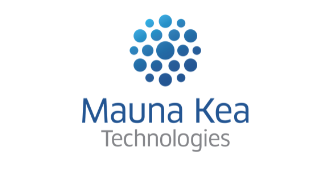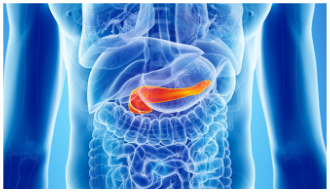Results were published in Respirology and provide further evidence supporting Cellvizio as a key complementary technology to robotic-assisted bronchoscopy, potentially impacting patient management and improving outcomes in patients with lung cancer
Mauna Kea Technologies today announces that the results of the first in human clinical study combining nCLE and robotic-assisted bronchoscopy (Clinicaltrials.gov: NCT04441749) have been published in the international peer-reviewed journal Respirology1.
This clinical study, co-funded by the Lung Cancer Initiative at Johnson & Johnson2, combines needle-based confocal laser endomicroscopy and robotic-assisted bronchoscopy using both Cellvizio® and the Monarch™ Platform from Ethicon3 for the diagnosis of peripheral lung nodules.
Twenty patients with a median lung nodule size of 14.5mm (range 8-28mm) were enrolled. This study demonstrated that robotic-assisted bronchoscopic nCLE-imaging in small peripheral lung lesions is feasible and safe and provides real-time feedback on correct needle positioning. Bronchoscopic nCLE-imaging provided tool-in-nodule confirmation in 19 of 20 patients (95%) whereas corresponding rapid on-site evaluation (ROSE) confirmed representative material in only 9 of 20 patients (45%) and no complications were reported during the study. With nCLE real-time in vivo cellular imaging feedback, the needle was repositioned in 45% of the patients (9/20 patients) to reach a diagnostic yield across all nodule sizes and locations of 80%. Of the 17 patients with malignancy, 16 (94%) had the final diagnosis of lung cancer confirmed by nCLE imaging, including two patients with negative TBNA and biopsies. Blinded raters accurately and consistently distinguished malignant nCLE videos from airway/lung parenchyma.
Christopher Manley, M.D., Director of Interventional Pulmonology, Medical Director of Research and Development Alliances, and Associate Professor of Medicine at Fox Chase Cancer Center in Philadelphia, Pennsylvania, the principal investigator of this study, commented on the results: “This was a collaborative effort between Fox Chase Cancer Center and Amsterdam UMC. Our study combined the dexterity of robotic assisted bronchoscopy and nCLE with real-time in vivo cellular imaging feedback to precisely target small lung lesions. Our data show the potential of robotic bronchoscopic nCLE-imaging as a safe, improved strategy to diagnose small difficult-to-access lung nodules.”
“These results support the potential of nCLE to reduce the current near-miss rate, improve diagnostic yield and avoid false negatives during bronchoscopic evaluations of lung nodules. We look forward to broadening the adoption of Cellvizio in the Interventional Pulmonology community,” said Sacha Loiseau, Ph.D., Chief Executive Officer of Mauna Kea Technologies.
[1] DOI: 10.1111/resp.14438 https://doi.org/10.1111/resp.14438
[2] The legal entity of the Lung Cancer Initiative at Johnson & Johnson is Johnson & Johnson Enterprise Innovation Inc.
[3] Ethicon represents the products and services of Ethicon, Inc., Ethicon Endo-Surgery, LLC and certain of their affiliates. All other trademarks are the property of their respective owners.


